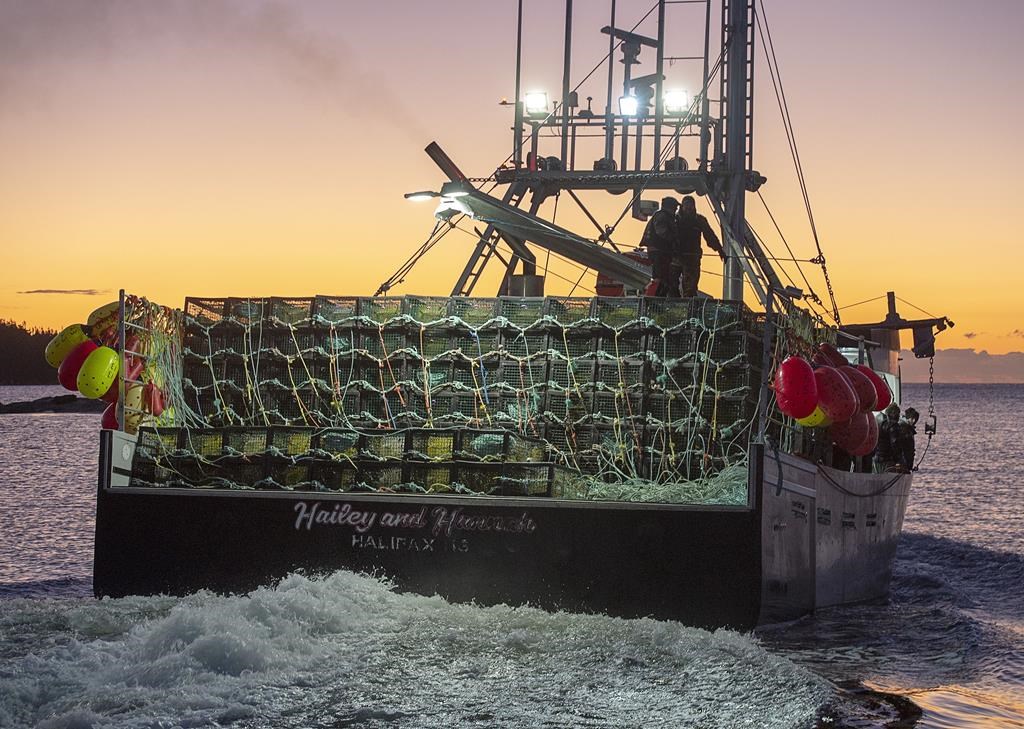Lobster processors and fishermen in the Maritimes are calling for a delay in the spring fishing season until May 15 as the coronavirus pandemic continues.

In an open letter to federal fisheries minister Bernadette Jordan and the premiers of New Brunswick, P.E.I., Nova Scotia, and Quebec, the Lobster Processors of New Brunswick and Nova Scotia say they believe a “perfect storm” is coming in the lobster industry.
Those concerns are being echoed by the Maritime Fisherman’s Union (MFU), which represents more than 1,300 fishers.
The union says the industry needs “a broad suite of support measures adapted to the seasonal realities of our industry, to bridge financial gaps between this crisis year and next year’s fisheries.”
In a statement, a spokesperson for Minister Jordan says the Department of Fisheries and Oceans (DFO) has received the request for a delay in Lobster Fishing Area 23 from the Maritime Fisherman’s Union.
“The health and safety of workers remains our number one priority and we take these concerns very seriously. The Minister and department officials are consulting with industry partners to determine the best path forward on the matter, and will have more to say soon,” said DFO spokesperson Jane Deeks.
The spring lobster season in New Brunswick was delayed last month. DFO accepted the request, and confirmed the date would be pushed back from March 31 to April 30 in Lobster Fishing Areas 36, covering Alma to the U.S. border, and 37, covering the Grand Manan Island region.

The processors and fishers say there are serious concerns about their ability to ensure a safe working environment, given physical distancing guidelines.
“The demographic profile of our Canadian workforce, averaging 55-60 years old, some with health conditions that place them at higher risk, is another profound source of concern,” said Lobster Processors of New Brunswick and Nova Scotia president Jerry Amirault.

Get breaking National news
“None of us would ask harvesters to fish in 50-knot winds; how can we ask our workers to charge forward as ‘the light brigade’ of the lobster sector by opening plants in this environment, potentially putting lives at risk.”
Amirault’s letter outlines issues with hundreds of people working in tight quarters, and says asking processors to secure personal protective equipment that is badly needed by health care professionals is “a non-starter.”
The fisherman’s union says beyond those concerns, there are worries about the economic impact.
“Considering the information currently available, to proceed with a fishery in the current economic landscape could threaten the long-term sustainability of our industry for years to come and force its recovery over many years,” the MFU said in a press release.
With files from Global News’s Tim Roszell
Questions about COVID-19? Here are some things you need to know:
Health officials caution against all international travel. Returning travellers are legally obligated to self-isolate for 14 days, beginning March 26, in case they develop symptoms and to prevent spreading the virus to others. Some provinces and territories have also implemented additional recommendations or enforcement measures to ensure those returning to the area self-isolate.
Symptoms can include fever, cough and difficulty breathing — very similar to a cold or flu. Some people can develop a more severe illness. People most at risk of this include older adults and people with severe chronic medical conditions like heart, lung or kidney disease. If you develop symptoms, contact public health authorities.
To prevent the virus from spreading, experts recommend frequent handwashing and coughing into your sleeve. They also recommend minimizing contact with others, staying home as much as possible and maintaining a distance of two metres from other people if you go out.
For full COVID-19 coverage from Global News,









Comments